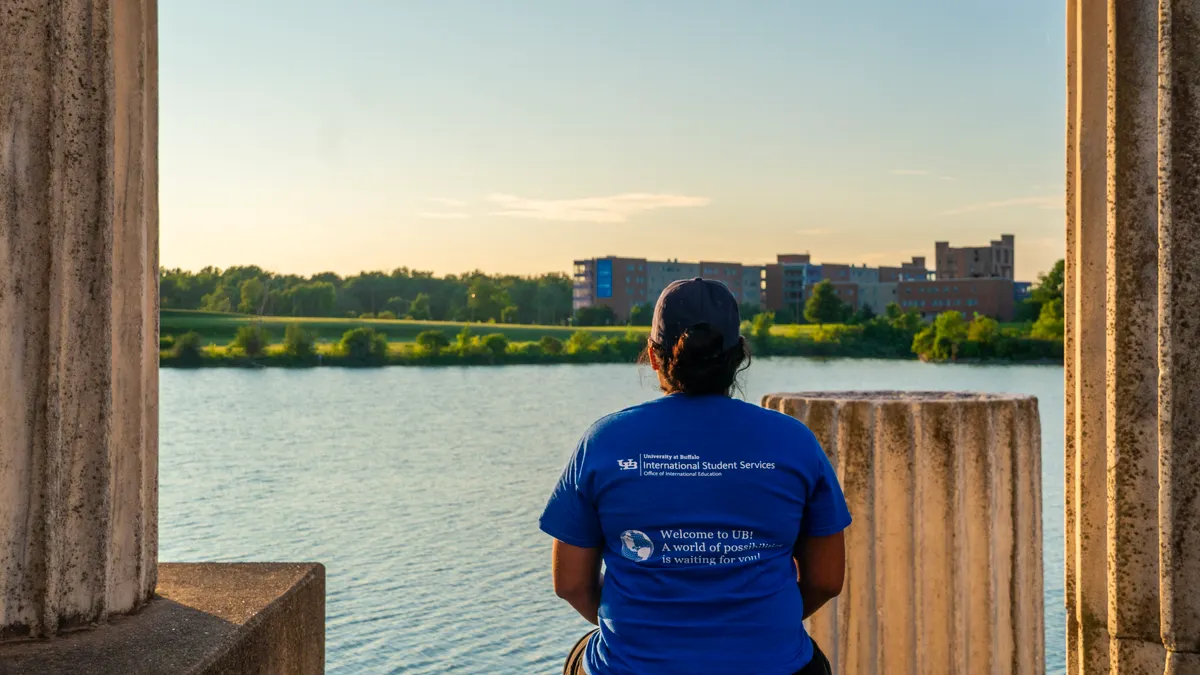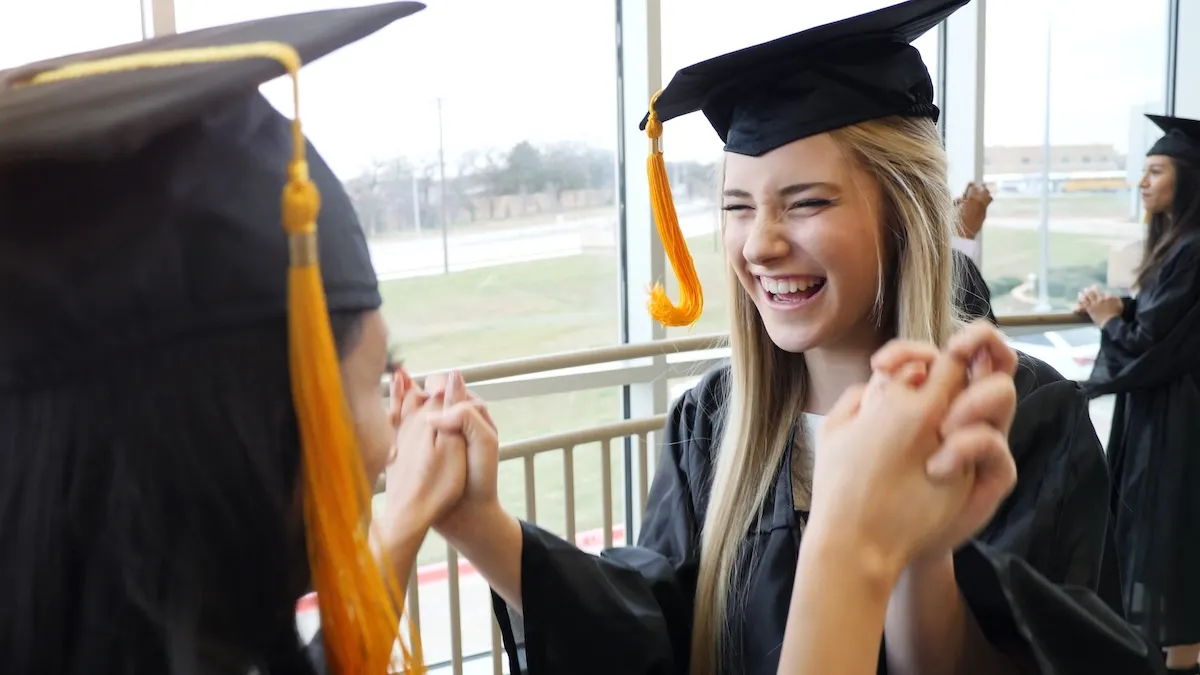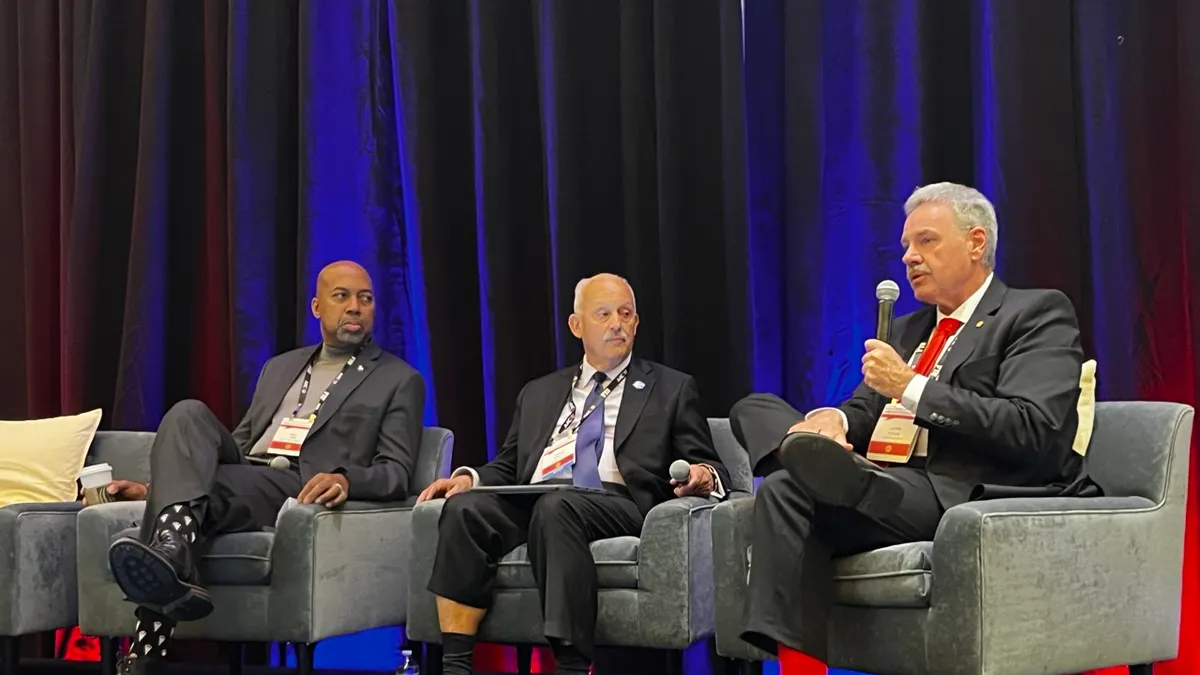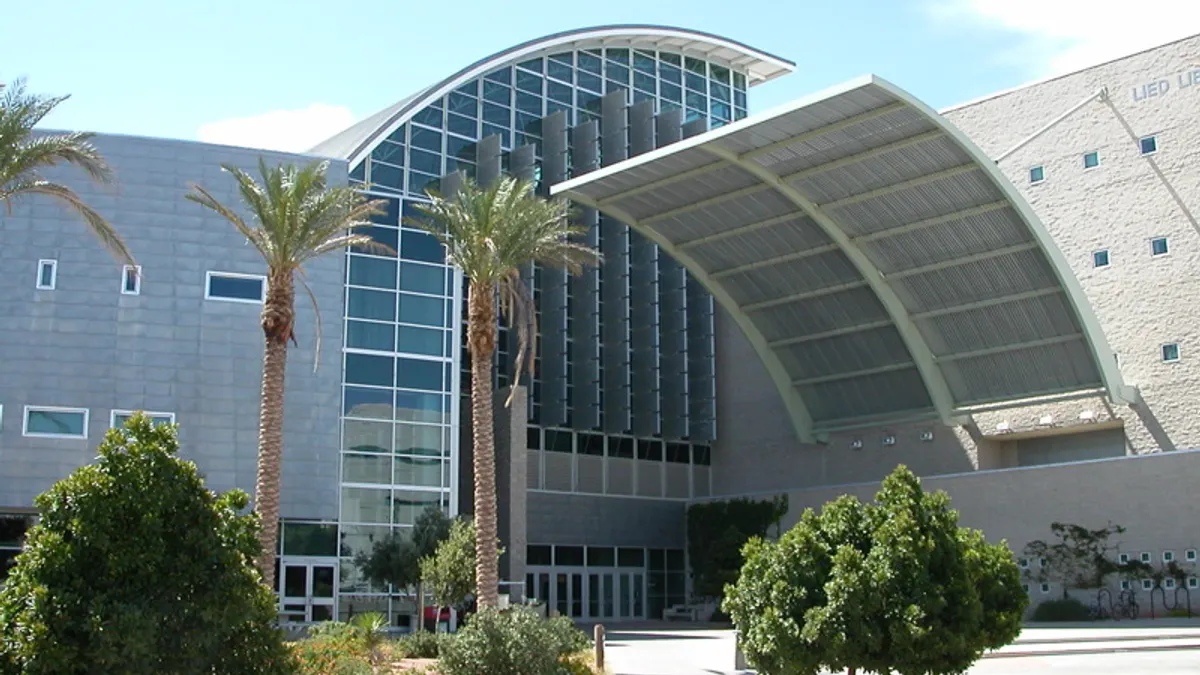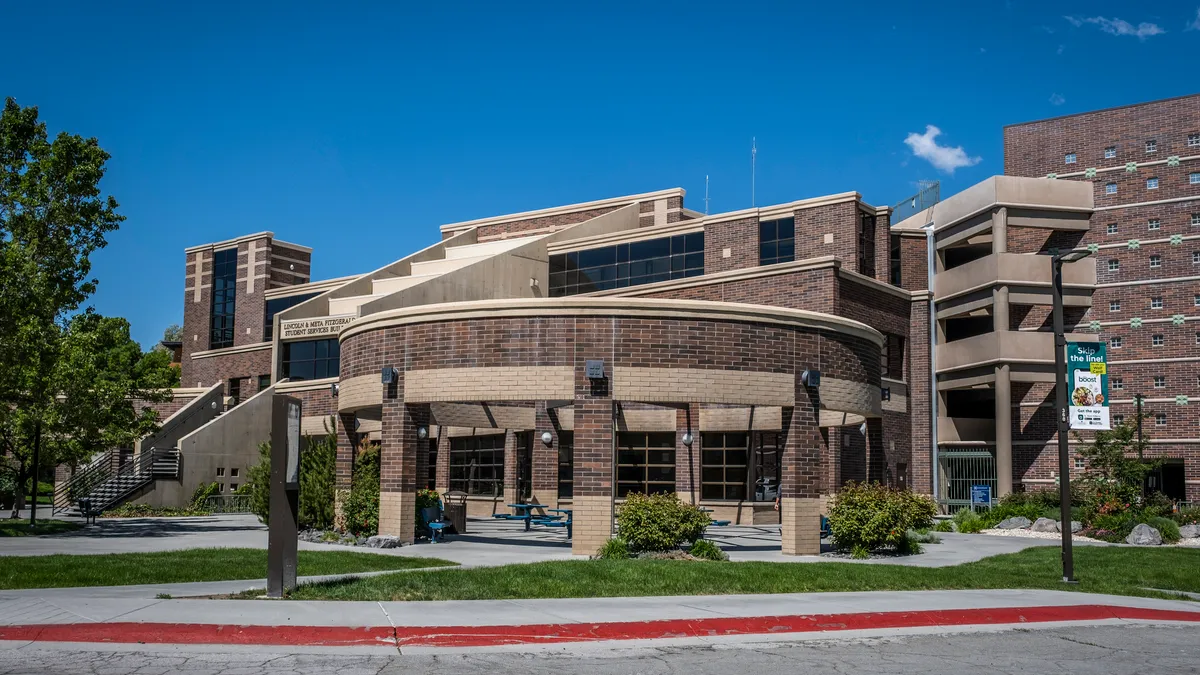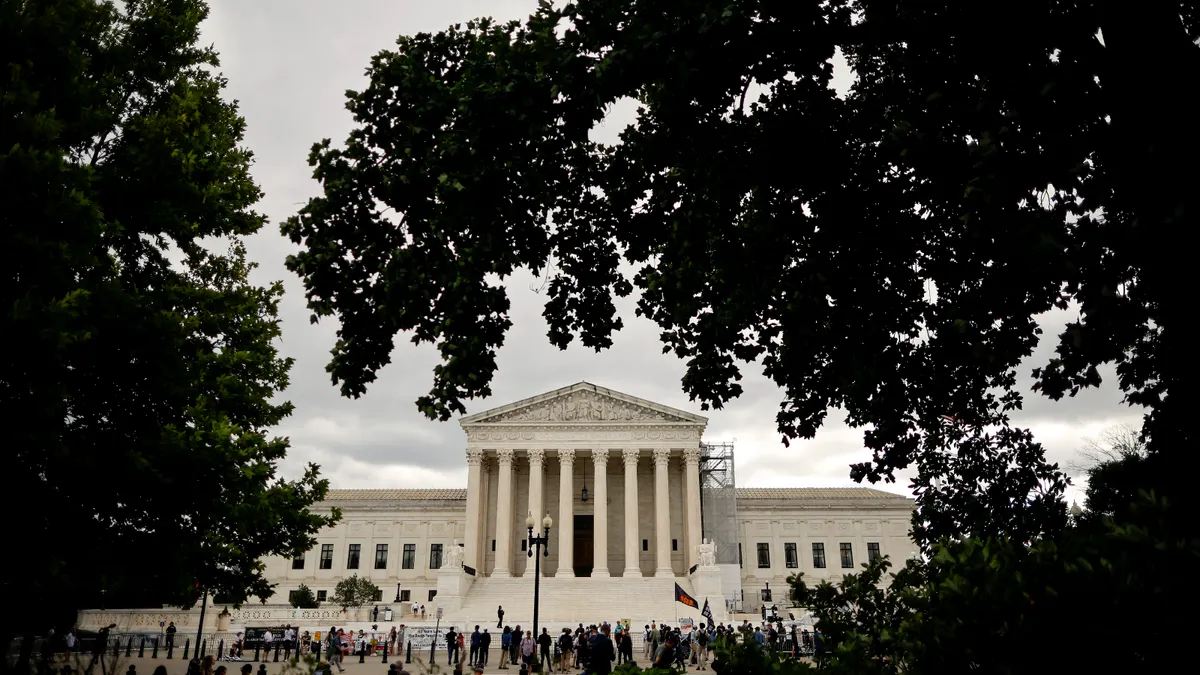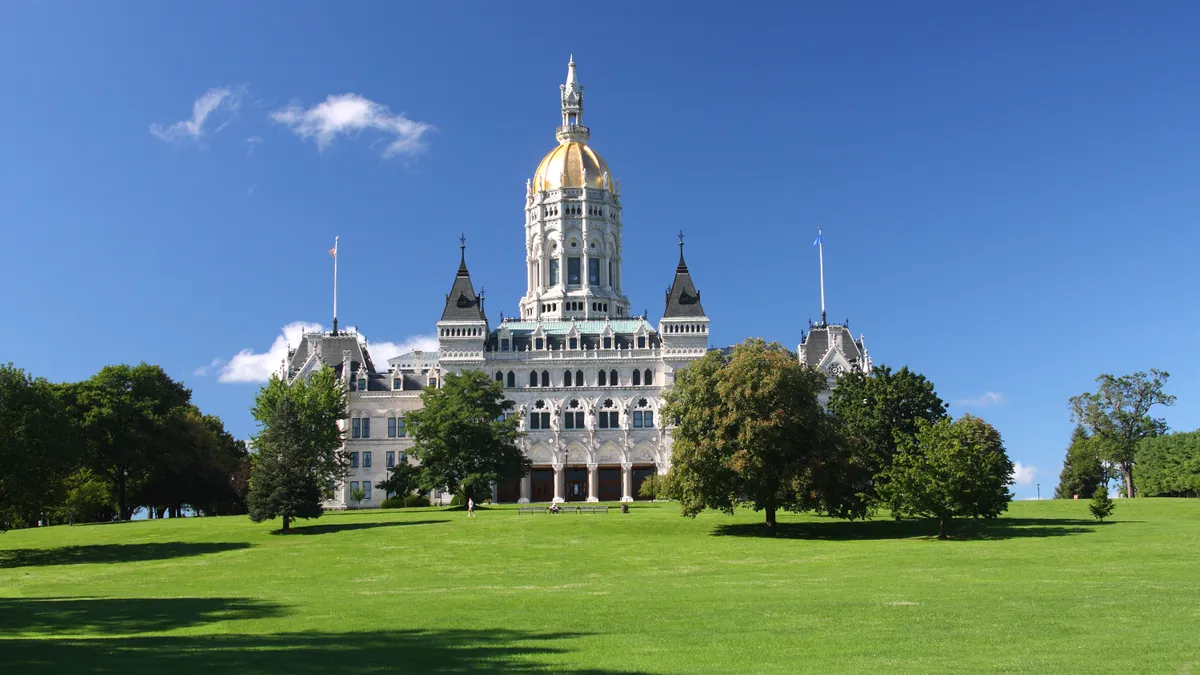A loss of international students due to restrictive federal policies could disproportionately harm small private colleges that have specialized focuses or are affiliated with Christian churches, according to a recent report from the Brookings Institution.
Many public institutions that charge much higher tuition for international and out-of-state students could also face serious financial hits, said the report’s author, Dick Startz, an economics professor at the University of California, Santa Barbara.
In his analysis, Startz looked at the common traits of colleges where international students made up at least 30% of enrollment. He found that all of those colleges were private, tended to be small, and have a special focus like business or arts.
They were also disproportionately Christian colleges. According to the report, Christian institutions represent 34.3% of colleges and universities where international students comprise more than 30% of total enrollment.
“Perhaps the importance of international students to Christian schools should not be so surprising,” the report said. “Many Christian schools are affiliated with evangelical beliefs, spreading their faith globally.”
Many small private and religious colleges in the U.S. have closed in recent years amid enrollment losses. For such institutions, a sudden loss of 30% of their student population could be a “disaster,” the report warned.
“The majority of schools will see very little effect,” said Startz. “But there are a small number of schools — private schools that are not very large — and 30% of their budget could disappear. It could be devastating."
In June, the U.S. Department of State reopened consular interviews for foreign students looking to apply or renew their student visas after freezing the process the month prior. The State Department, however, now requires those students to unlock their social media accounts so consular officers can review whether they consider their posts hostile to the U.S. or to its culture and founding principles, The Associated Press reported.
International students who were previously in the country with active visas are less likely to be affected, said Startz. But first-year students, new graduate students, or some students who need to renew their visas will be impacted, he said.
It’s unclear how much those policies will affect international student enrollment or when colleges may start seeing significant impacts, said Startz. But some major colleges and university systems are already beginning to report a major drop in international student enrollment.
Over the summer, NASFSA: Association of International Educators projected international enrollment at U.S. colleges could decline by as much as 150,000 students this semester if the federal government did not start ramping up efforts to issue visas.
International freshmen enrollment at elite institutions like Princeton University and Columbia University remained steady heading into fall, The New York Times reported. However, other institutions, such as the University at Buffalo, are reportedly experiencing significant declines in international student enrollment, NPR reported.
Affecting the economy, affecting colleges
Volatility in international student levels could affect nearly every college in the country that enrolls foreign students, the Brookings report stated. But not every college — even the ones with large foreign student enrollments — would be affected equally.
Colleges such as the University of California, Santa Barbara — where international students make up 9% of enrollment — could face serious financial threats. That’s because those students pay triple the tuition paid by in-state students at UC Santa Barbara, the report stated.
Institutions such as New York University, Northeastern University and Arizona State University also enroll a lot of international students — but compared to their total student population, it’s “not overwhelmingly high,” said Startz.
And prestigious institutions could probably fill those students’ slots regardless, he said.
A loss in international enrollment could also impact the economies of college towns — hurting landlords and local businesses like pizza shops and bars, said Startz.
Democratic-leaning states, such as Massachusetts, could be disproportionately affected economically, the report stated. But there could also be repercussions for the U.S. in general, as many international students eventually work at high-tech firms and in university labs conducting major medical and science research, Startz added.
International students often attend U.S. colleges because they want to be taught in English, said Startz. As such, the U.S. might lose many of those students to Australia, Canada, the United Kingdom, Hong Kong and Singapore, he said.
That could affect the U.S. politically. International students often return home with a positive view of America and Americans and go on to help lead their country in politics or business, Startz said. That includes prime ministers, such as the heads of Canada, Singapore and Botswana, he said.
“There’s certainly a concern that we’re just making students feel unwelcome,” said Startz. “If they choose either not to come or they come and actually have a bad experience, way down the road that’s a really bad thing.”

